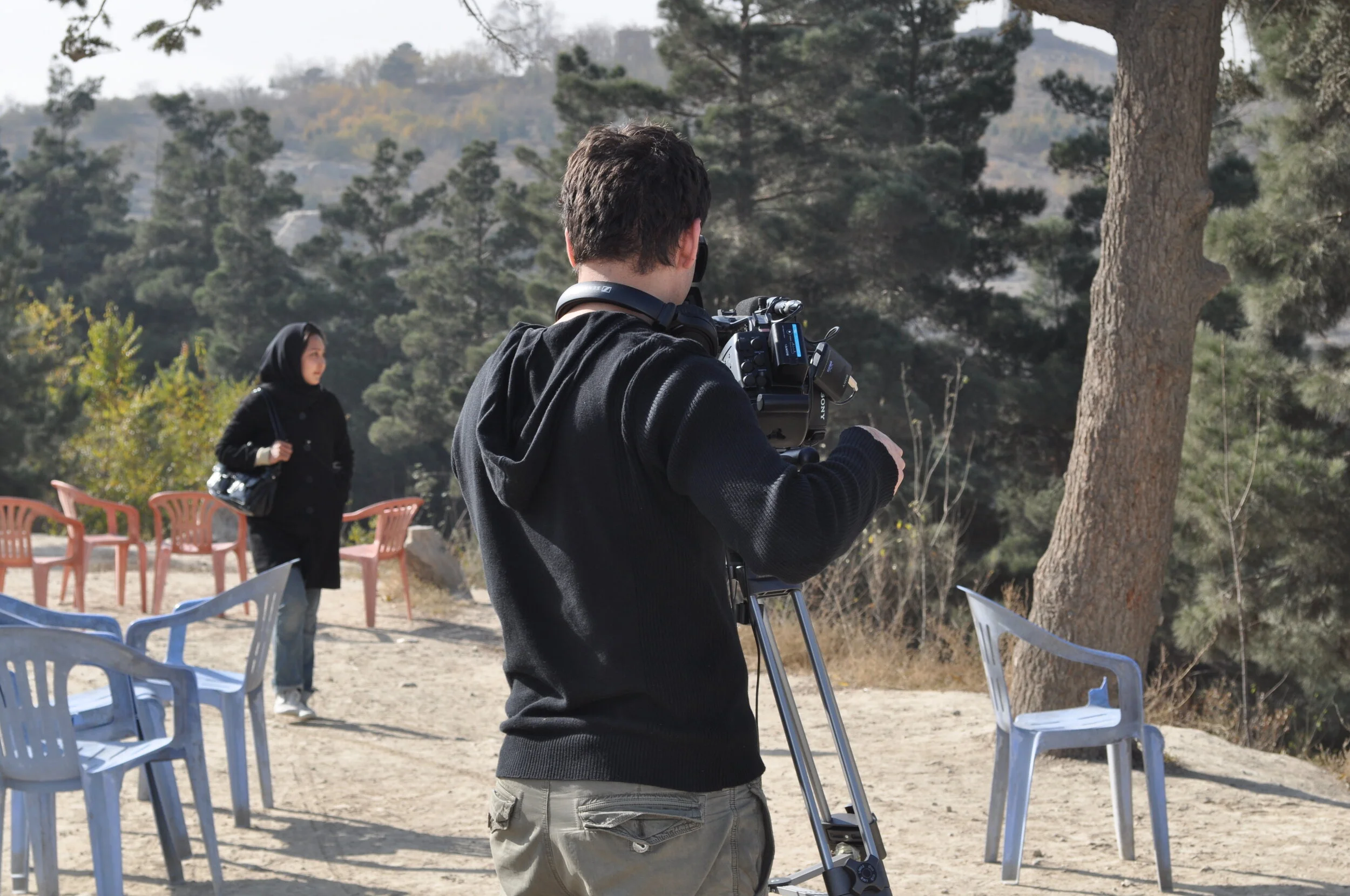Young Afghans (2010)
Young Afghans is a documentary which follows three charismatic students during their final year at Kabul University. As Farzana, Mauj and Sabawoon navigate life in a war zone and talk about their hopes and dreams for the future, we also catch a glimpse of what the future holds for Afghanistan. Developed with ORTV for Al Jazeera English’s ‘Witness’ strand. Currently available to stream on the Docunight platform.
Directed and Produced by: Makez Rikweda & Sol Rikweda







![All films 31].jpg](https://images.squarespace-cdn.com/content/v1/6168590029a50c168d207ab9/7b8b7463-7e03-4b81-b3e1-c4aa7a16a645/All+films+31%5D.jpg)


“Young Afghans”
A Film Review By Farhad Azad
Filmed in the middle of the twenty US-led “war on terrorism,” three dynamic Afghans, in their mid-20s and final year at Kabul University, are the center of UK-based director Makez Rikweda’s conscientious documentary “Young Afghans.”
Rikweda mindfully takes the viewer into the public and private lives of the main characters. They are a part of a generation positioned to propel Afghanistan into a more hopeful tomorrow; in the film, a foreign personality states an arduous task, “This conflict will not end because of foreign intervention, meddling, but because of you.”
Farzana, a psychology major, is autonomous and set to confront society’s patriarchal norms and questions the continued interference of foreign powers: “Just once, let’s look at ourselves and ask why it is that foreigners have dared to interfere in this country.”
Sabawoon, an engineering student, aspires to apply his technical skills to reconstruct Afghanistan. “I want Afghanistan to be the most developed country.”
And Mauj, a self-appointed leader, is determined to change Afghanistan’s trajectory by growing the leaders of the future. “We need leaders raised from within the nation.”
On the surface, the three characters show immense optimism and want normal lives in the “Kabul bubble,” a spiteful term dubbed by some residing outside the city, but are mindful of significant barriers: suicide bombings, traditionalistic society, government dishonesty, and the ongoing three decades of conflict. Sabawoon overlooking Kabul says, “I can’t see a picture of the future because it’s dark.”
In the 2000s, the Afghanistan narrative was often told by non-natives. Rikweda wanted to challenge that, “I think the key thing that inspired this film was a desire to hear Afghans speak and to show them as powerful, intelligent, capable people who were entirely dedicated to their country while at the same time being human and going through youth’s milestones in the same way we all do.”
Rikweda offers a rare, intimate look into the post 9/11 progressive Kabuli generation. The background landscape is a city juxtaposed between 1990s war ruins and new developments.
It is disheartening to see the film after the Taliban coup d’etat, particularly the collapse of the liberal outpost Kabul University, the banning of women from work and education, and the economic downfall.
This generation’s experience echos the youth of the 1960-the 70s, who set upon a similar path but were short-handed by a calamity.
The poet Layla Sarahat Rushani (1958-2004) penned, “a hand clasped my wings of hope.” Her generation never recovered.
Rikweda’s film is a critical historical account of the youth that could have steered Afghanistan towards modernity. However, their wings were literally and figuratively clipped. The majority are stranded and desperate, first on the tarmac of Kabul Airport and now in hiding, because of the latest manmade catastrophe.
“Young Afghans” is available for streaming in November 2021 at Docunight.com.
https://afghanmagazine.com/post/665959708279111680/young-afghans-a-film-review

